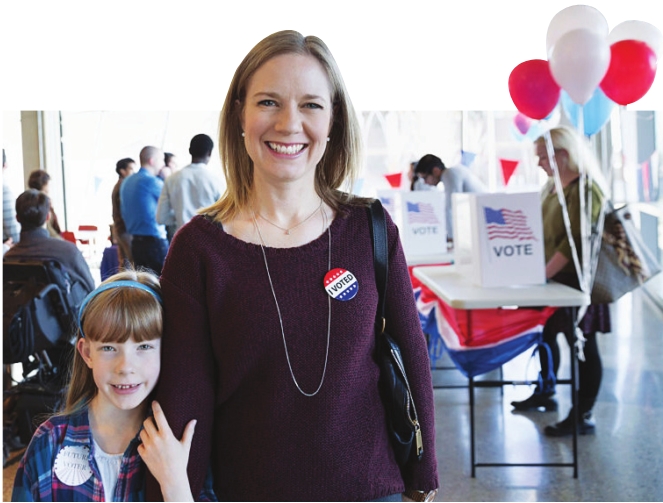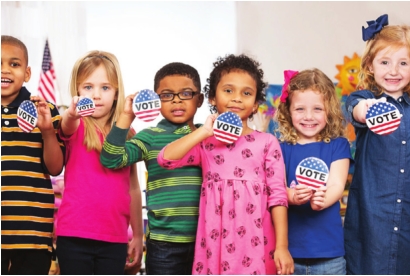
Take your kids with you to the polls
FAMILY LOVE
What is the best way to teach our children about democracy? Each time Election Day rolls around, parents have the most opportune time and option to teach their children about how our democratic society works. It is one the best opportunities to teach about the importance of playing an active role in our democracy.
As parents, we are our children's first and most important role models for them the rest of their lives. Just like we teach our children to pick up after themselves and be kind to others, it is also our job to teach them about the rights and responsibilities that come with being a citizen in our democracy.
To help your child understand democracy and why we vote, think of things that your family does as a whole. Vote on those things that go on in your family’s life: where to go eat, what TV show to watch, what to have for dessert or snack. The list could go on. Add your ideas to the list that your family likes to do.
The rule is: The majority wins. Of course, if they suggest a television show you do not allow them to watch or places they want to go that are taboo, you are the parent, so tell them those are a “no-go” in the voting process.
Activities to help children learn about the voting process:
Take
two boxes and tape them closed. Print one option on one box and another
option on another box. Cut a slit in each, large enough for a small
index card to go through. Give each family member an index card. Then
each family member will put their card in the box of their choice. Count
the cards in each box and declare a winner.
If
possible, take your children with you to the polls; it will be an
education in itself. They get to see you present your ID (or allow them
to present it to the poll worker for you). They get to see what the
voting booth looks like. They witness you casting your vote.
To
add to the excursion, talk about how we vote for people who will vote
to uphold our values and what we believe in. According to the age,
mention what some of those values are and what you hope the person you
voted for will do if he or she gets elected. Discuss the hope that the
elected person will work to make a better life for the people who they
work for, and we are part of those people.
No
matter where you stand on the issues or who you plan to vote for, the
voting process is an important part of American democracy, and it
depends on all of us getting out there and making our voices heard.
As
parents we should be diligent about teaching our children that as
Americans, we have a right and an obligation to have a say in our
country's future. So let’s all do our part to pass on this important
lesson to the next generation, and if you can, take your child to vote.
Voting is an important part
of the American democracy. But moreover, it's a key opportunity to
allow our kids to see how politics works first-hand. It's important to
understand how the voting process works, how decisions are made and how
kids can be involved, informed and even influence decisions and
discussion before they turn 18. Believe that there are learning
experiences in nearly every adult/child interaction, and particularly in
the electoral process and voting.
Take
your kids to polls anytime you vote to let them see the importance of
being engaged and involved in the community. It will provide them
lifetime memories and encourage them to vote when they are older.
And
there is also the choice factor. While some people will vote along
party lines, every election is an opportunity to choose the best person
for the elected position. Who really will make a better president?
Our
kids need to understand the reasons people run for political office,
and they need to learn how to compare the candidates. Going to the polls
gives a chance to teach kids about politics and citizenship.
Beyond the learning experience, learning about elections, it can be a fun family experience.
Dianne Glasgow is a family and child specialist at the LSU AgCenter in Caddo Parish.
She can be reached at [email protected], 226-6805 or 464-2552.